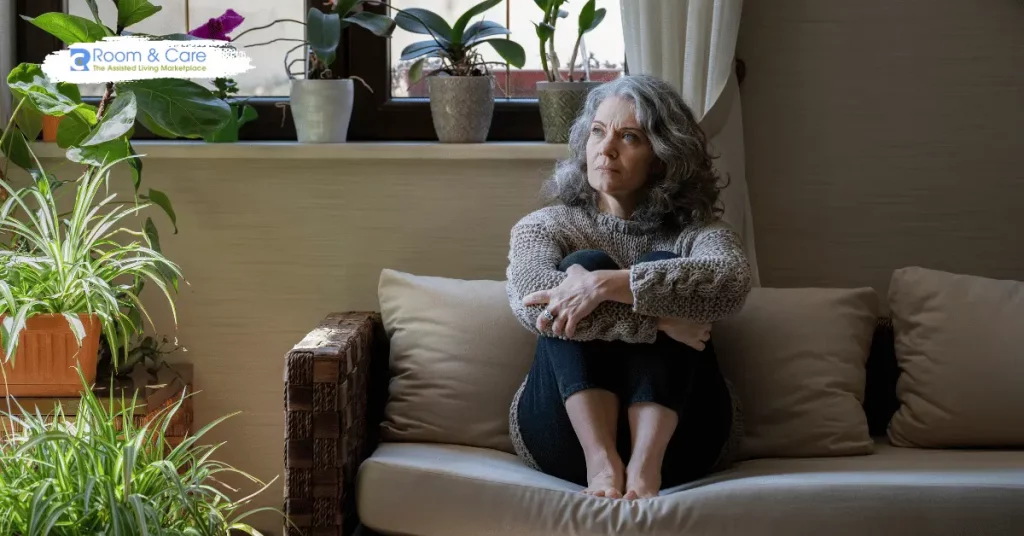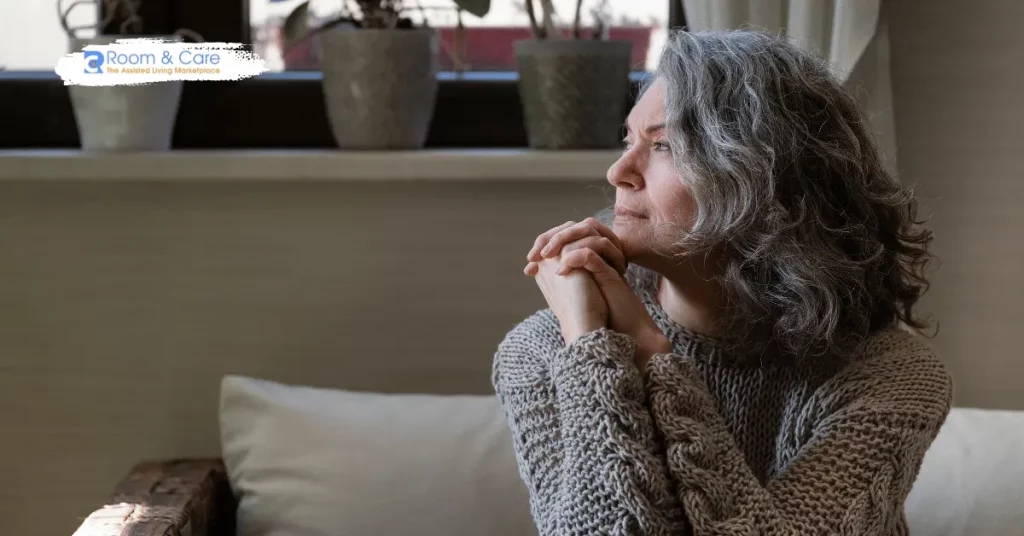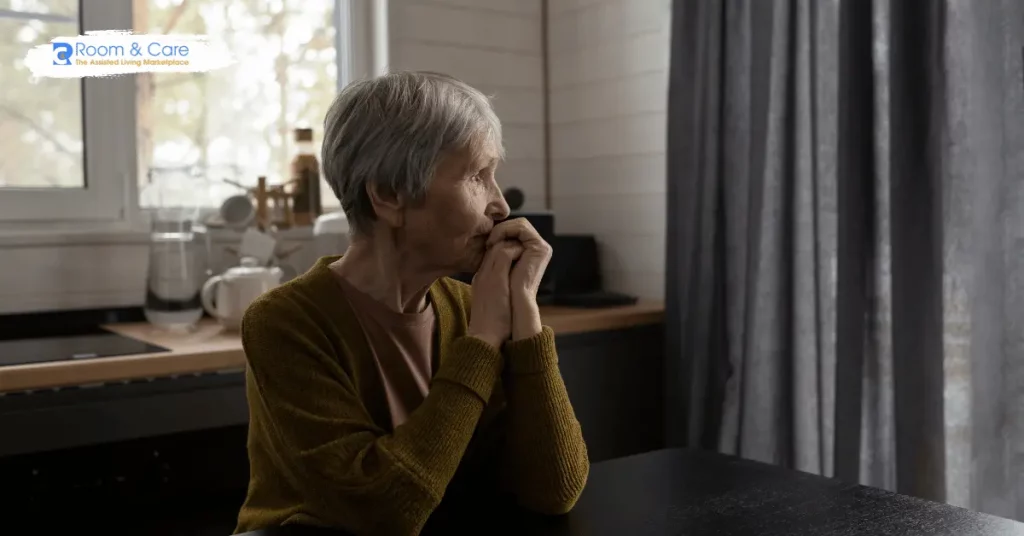

As dementia affects millions of seniors worldwide, families face the critical challenge of ensuring their loved ones’ safety. Dementia impairs memory, judgment, and the ability to perform daily tasks, making living alone increasingly dangerous. The dangers of living alone with dementia can lead to severe health issues, accidents, and even life-threatening situations. In this comprehensive guide, we will explore the risks involved, discuss the benefits of senior living communities, and provide insights on how families can make informed decisions to ensure their loved one’s well-being.
Living alone with dementia poses a series of risks that can jeopardize the safety and health of those affected by this progressive condition. As dementia advances, it becomes harder for individuals to manage everyday tasks, increasing their vulnerability. Below, we explore the most common and dangerous risks associated with seniors living alone with dementia.
Falls are one of the most significant dangers for seniors with dementia. Dementia can impair coordination, balance, and spatial awareness, making it easier for seniors to trip, lose balance, and fall. When living alone, these falls often go unnoticed, delaying critical medical attention.
According to the CDC, 25% of adults aged 65 or older fall each year, and the risks increase for those with dementia. When seniors with dementia fall, they may not have the capacity to call for help or even recognize the severity of their injury. These accidents can lead to broken bones, head injuries, and long-term complications.
In senior living communities such as assisted living facilities or memory care facilities, professionals monitor residents, help prevent falls, and respond quickly to emergencies. This level of oversight can save lives and prevent long-term health issues that arise from untreated injuries.
Dementia often affects a person’s ability to remember simple but crucial tasks, such as eating meals, drinking water, or taking medications on time. Living alone with dementia increases the chances of malnutrition, dehydration, and other health complications due to forgotten meals or missed doses of critical medications.
A report by the Alzheimer’s Society states that up to 45% of dementia patients experience weight loss, often due to forgetting to eat or drink. Dehydration and malnutrition further exacerbate cognitive decline, leading to worsening dementia symptoms. For seniors with existing health conditions like diabetes or heart disease, forgetting to take medications could be life-threatening.
In senior living communities, residents receive personalized care plans that include meal preparation, hydration reminders, and medication management. This attention to detail ensures that seniors maintain their health and avoid the adverse effects of forgetting essential daily routines.
Wandering is one of the hallmark behaviors of dementia, and it presents a significant danger for those living alone. Seniors with dementia may become disoriented and leave their home without direction or purpose. Once outside, they may forget how to return home, putting them at risk of getting lost or injured.
The Alzheimer’s Association reports that 6 in 10 people with dementia will wander at some point, and if they are not found within 24 hours, there is a 50% chance of serious injury or death. Wandering exposes seniors to dangerous situations such as walking into traffic, wandering into unfamiliar or unsafe areas, or succumbing to weather conditions.
Senior living communities, especially memory care facilities, are designed with safety in mind. These communities have secure environments that prevent wandering while still allowing residents freedom within the space. Trained staff can intervene before a senior places themselves in a dangerous situation.
For seniors with dementia living alone, simple tasks like cooking can become hazardous. They may forget to turn off the stove, leave kitchen appliances on, or mishandle flammable items. These lapses in memory can lead to fires or other serious accidents.
The National Fire Protection Association (NFPA) reports that older adults are at higher risk of home fire deaths, with cooking being a leading cause of fire-related injuries. Seniors with dementia are particularly vulnerable because they may not recognize the fire hazards or know how to respond to an emergency.
Assisted living and memory care facilities often have safety measures in place to prevent kitchen accidents and fires. Residents are either assisted in meal preparation or have meals provided for them, reducing the risk of fires and other kitchen-related hazards.
Unfortunately, seniors with dementia are frequent targets of scams and financial exploitation. Cognitive decline makes it difficult for them to recognize fraudulent schemes, and living alone leaves them more susceptible to predators who seek to take advantage of their confusion.
The Consumer Financial Protection Bureau estimates that older adults lose nearly $2.9 billion each year to financial exploitation. For individuals with dementia, this risk is even more pronounced, as they may struggle to differentiate between legitimate and illegitimate transactions. Financial abuse can lead to the loss of savings, assets, and even homes.
By moving to an assisted living or memory care facility, seniors can be protected from these types of scams. These communities often help manage finances, monitor suspicious activity, and ensure that residents’ assets are safeguarded from potential exploitation.

Deciding when to transition a loved one with dementia into a senior living community is a difficult but important decision. It is essential to monitor the progression of the disease and recognize when living alone is no longer safe. Here are key factors to consider:
When dementia begins to severely affect a senior’s ability to remember essential tasks, recognize their surroundings, or stay oriented to time, it may be time to consider moving to a senior living community. This confusion can lead to wandering, forgetfulness, and accidents.
Memory care facilities are specifically designed to accommodate the needs of individuals with dementia, offering structured environments, memory aids, and constant supervision to help prevent accidents and confusion.
Seniors with dementia may begin to neglect basic hygiene and self-care tasks, such as bathing, brushing their teeth, and dressing appropriately for the weather. These signs indicate that they need more assistance than they can manage on their own.
Assisted living facilities offer personal care services that ensure residents maintain proper hygiene and stay healthy. Professional caregivers help with daily grooming, dressing, and other essential self-care activities.
Living alone often leads to social isolation, which can be particularly harmful to seniors with dementia. Isolation accelerates cognitive decline and can contribute to depression, anxiety, and other mental health issues. Seniors with dementia may also forget to maintain relationships or engage in social activities, further deepening their isolation.
Senior living communities provide social opportunities through structured activities, group outings, and communal living arrangements. These interactions are crucial for mental health and can slow the progression of dementia symptoms.
As dementia progresses, seniors may experience frequent health complications that require medical attention. If you notice your loved one is visiting the hospital more often due to falls, malnutrition, dehydration, or other dementia-related issues, it may be time to consider a senior living community that can provide constant medical oversight.
Many senior living facilities, especially assisted living facilities and memory care facilities, have on-site healthcare professionals who can monitor residents’ health, administer medications, and respond to emergencies, reducing the need for frequent hospital visits.
Caring for a loved one with dementia is an emotionally and physically demanding task. Family caregivers often experience burnout due to the constant need for vigilance and assistance. If you or your loved one’s caregiver is feeling overwhelmed, it may be time to seek professional help from a senior living community.
Memory care and assisted living facilities can share the responsibility of caregiving, providing professional, compassionate support while allowing family members to focus on maintaining their relationships with their loved ones.
Moving a loved one into a senior living community is a major decision, but it offers several advantages that can enhance their quality of life. Here are some of the key benefits:
Memory care facilities provide specialized care for individuals with dementia. The staff is trained to understand the behaviors, needs, and challenges associated with the condition. This expertise allows them to offer the highest level of care, ensuring that your loved one’s unique needs are met.
One of the biggest benefits of memory care and assisted living facilities is the structured environment they provide. These facilities are designed to be safe and easy to navigate, reducing the chances of accidents and confusion. Daily routines and activities help create a sense of stability, which can be comforting for seniors with dementia.
Assisted living and memory care communities provide residents with a variety of activities to keep them engaged, from group outings to art therapy and games. These activities are designed to stimulate cognitive function and enhance social interactions, which can improve overall well-being.
Senior living communities provide access to medical professionals who can monitor residents’ health and respond to emergencies. This level of care ensures that seniors receive timely medical attention, which is crucial for managing chronic health conditions alongside dementia.
Transitioning your loved one to a senior living community relieves the burden on family caregivers. It allows families to focus on spending quality time with their loved ones without the constant stress of caregiving duties.

Deciding to move a loved one into a senior living community is a significant change, but with the right preparation, it can be a smooth transition. Here are some tips to help families through the process:
Start the Conversation Early: It’s best to discuss the possibility of moving to a senior living community early in the dementia diagnosis. Involving your loved one in the decision-making process can help ease the transition and reduce feelings of resistance.
Research Facilities: Take time to research different senior living communities. Visit several options, meet with staff, and ask questions to ensure the community can meet your loved one’s specific needs. Room and Care offers a platform to find the best assisted living and memory care facilities in your area, with no referral fees or middlemen.
Plan for the Move: Help your loved one pack familiar items, such as photos, favorite furniture, and personal mementos, to make their new living space feel like home. A smooth transition can make it easier for seniors to adapt to their new environment.
Stay Involved: After your loved one has moved into a senior living community, continue to stay involved in their care. Regular visits and communication with staff will help ensure that your loved one receives the best possible care and feels supported.
Can my loved one maintain some level of independence in a memory care facility?
Yes, memory care facilities are designed to offer a balance between safety and independence. Residents are encouraged to participate in daily activities and maintain as much independence as possible while being supported by trained staff.
How do I know if it’s time to move my loved one to a senior living community?
When you notice signs such as frequent falls, increased confusion, poor hygiene, or health complications, it may be time to consider a senior living community. Consulting with your loved one’s healthcare provider can also help guide your decision.
What if my loved one resists the move?
It’s common for seniors with dementia to resist change. Involving healthcare professionals and gently explaining the benefits of the move can help. Ensure that the transition is as smooth as possible by preparing their new living space with familiar items and providing reassurance.
The dangers of living alone with dementia are significant, but they don’t have to define your loved one’s future. Moving to a senior living community, such as an assisted living or memory care facility, offers a safer, more supportive environment where individuals with dementia can thrive.
At Room and Care, we understand how important it is to find the right place for your loved one. That’s why we offer direct access to the best assisted living facilities, adult family homes, memory care facilities, nursing homes, and independent living communities—all with no referral fees or middlemen. Let us help you take the next step toward ensuring a brighter, safer future for your loved one.